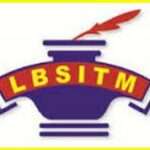An MBA Subjects curriculum encompasses a broad range of subjects that prepare students for various roles in the business world. These subjects can be broadly categorized into core and elective courses.

MBA subjects
MBA subjects encompass a broad spectrum of business disciplines, equipping individuals with the knowledge and skills to navigate the complexities of the corporate world. These subjects are designed to foster critical thinking, problem-solving, and strategic decision-making abilities, preparing graduates for success in various managerial roles.
MBA syllabus
The MBA syllabus orchestrates a comprehensive tapestry of subjects, encapsulating the core tenets of business management while extending specialized electives to accommodate diverse career aspirations. Although the specifics may vary across programs, the foundational structure consistently intertwines foundational courses, specialized electives, and culminating capstone projects.
Foundational Courses: Building Blocks of Business Acumen
- Financial Accounting: Introducing the rudiments of financial accounting, this course empowers students to decipher and interpret financial statements, fostering a nuanced understanding of fiscal landscapes.
- Managerial Accounting: Delving into the realms of managerial accounting, students acquire the prowess to scrutinize financial data, make judicious business decisions, and adeptly control costs.
- Corporate Finance: Unpacking the intricacies of financial management in corporations, this course traverses capital budgeting, risk management, financial analysis, and dividend policy.
- Marketing Management: Offering a comprehensive overview of marketing principles, strategies, and tactics, students delve into consumer behavior, formulate effective marketing plans, and adeptly orchestrate marketing campaigns.
- Organizational Behavior: Immersing into the dynamics of human behavior within organizational contexts, this course scrutinizes motivation, leadership, group dynamics, and the nuances of organizational change.
- Business Communication: Focusing on honing effective communication skills for the corporate realm, this course spans written communication, oral presentations, and interpersonal communication.
- Operations Management: Unpacking the principles and practices of operations management, this course traverses supply chain management, process optimization, and quality control.
- Economics for Managers: Introducing students to fundamental economic concepts, this course enables them to comprehend the economic milieu shaping businesses and make decisions aligned with economic principles.
- Quantitative Methods for Business: Laying the groundwork in quantitative methods, encompassing statistics, probability, and decision analysis, this course furnishes students with tools to dissect data and make decisions rooted in evidence.
Specialized Electives: Tailoring Education to Aspirations
Beyond foundational courses, MBA programs extend a repertoire of specialized electives, enabling students to tailor their education to specific interests and career goals. These electives provide profound insights and skills in areas such as:
- Entrepreneurship: New venture creation, business planning, entrepreneurial finance
- International Business: Global marketing, international finance, cross-cultural management
- Technology Management: Information systems management, e-commerce, digital marketing
- Business Analytics: Data analysis, predictive modeling, business intelligence
- Sustainability: Sustainable business practices, environmental management, corporate social responsibility
Capstone Projects: Culmination of Learning
The MBA journey culminates in capstone projects, affording students the opportunity to apply accumulated knowledge and skills to real-world business problems. These projects facilitate the integration of learning, development of critical thinking, and showcasing the ability to apply business principles in practical scenarios. Embarking on this educational odyssey, students emerge adeptly equipped to navigate the multifaceted landscape of business management.
MBA core courses
The bedrock of business education lies in the essential MBA core courses, meticulously designed to impart a robust foundation in fundamental concepts and principles crucial for success in managerial realms. These courses serve as catalysts, endowing students with a profound understanding of key disciplines steering the corporate echelons. Armed with this knowledge, students can adeptly make informed decisions, navigate intricate challenges, and wield effective leadership in the dynamic tapestry of the business environment.
Essential MBA Core Courses: Unveiling the Pillars of Knowledge
Financial Accounting:
Unveiling the principles and practices of financial accounting, this course empowers students to decipher financial statements and assess the fiscal vitality of organizations.
Managerial Accounting:
Delving into the realms of managerial accounting, this course equips students with the prowess to scrutinize financial data, make judicious business decisions, and adeptly control costs.
Corporate Finance:
Exploring the intricacies of financial management in corporations, this course traverses topics like capital budgeting, risk management, financial analysis, and dividend policy.
Marketing Management:
Offering a comprehensive overview of marketing principles, strategies, and tactics, this course facilitates understanding consumer behavior, devising effective marketing plans, and successfully orchestrating marketing campaigns.
Organizational Behavior:
Immersing into the dynamics of human behavior within organizational contexts, this course scrutinizes motivation, leadership, group dynamics, and the nuances of organizational change.
Business Communication:
Focusing on honing effective communication skills for the corporate realm, this course spans written communication, oral presentations, and interpersonal communication.
Operations Management:
Unpacking the principles and practices of operations management, this course traverses supply chain management, process optimization, and quality control.
Economics for Managers:
Introducing students to fundamental economic concepts, this course enables them to comprehend the economic milieu shaping businesses and make decisions aligned with economic principles.
Quantitative Methods for Business:
Laying the groundwork in quantitative methods, encompassing statistics, probability, and decision analysis, this course furnishes students with tools to dissect data and make decisions rooted in evidence.
Business Ethics and Corporate Social Responsibility:
Scrutinizing ethical quandaries and social responsibility, this course urges students to cultivate a robust ethical framework, cognizant of the societal impact of business decisions.
MBA electives
MBA electives serve as a gateway for students to plunge into specific realms of business, cultivating specialized proficiency in alignment with their career ambitions. These elective offerings span a diverse spectrum, enabling students to tailor their educational trajectory, thus augmenting their employability across varied industries.
Common MBA Elective Categories:
Entrepreneurship:
Embarking on the entrepreneurship elective entails an exploration of new venture creation intricacies. This encompasses aspects like business planning, market analysis, financial modeling, and strategies for fundraising.
International Business:
The international business elective unveils insights into global business dynamics, encompassing cross-cultural management, international marketing, and detailed analysis of regional economies.
Finance:
The finance elective immerses students in advanced financial concepts and techniques. Areas covered include investment management, financial risk management, and strategies within corporate finance.
Marketing:
The marketing elective unveils specialized facets of marketing, such as digital marketing, consumer behavior analytics, and strategies for brand management.
Operations Management:
The operations management elective equips students with expertise in optimizing supply chains, managing logistics, and formulating operational strategies.
Technology Management:
Exploring the impact of technology on business, the technology management elective encompasses areas like e-commerce, information systems management, and data analytics.
Human Resource Management:
The human resource management elective delves into advanced HR topics, including talent management, leadership development, and organizational design.
Business Analytics:
The business analytics elective hones skills in collecting, analyzing, and interpreting data for informed decision-making. Topics covered include predictive modeling, data visualization, and business intelligence.
Sustainability:
The sustainability elective explores practices for sustainable business, spanning environmental management, corporate social responsibility, and assessments of social impact.
Benefits of Choosing MBA Electives:
- Tailored Education: Electives empower students to personalize their MBA journey, honing in on areas that harmonize with their career objectives.
- Specialized Expertise: Offering in-depth knowledge and skills, electives enhance employability by cultivating specialized proficiency in specific domains.
- Industry Insights: Electives provide exposure to contemporary trends and practices in diverse industries, equipping students for the ever-evolving business landscape.
- Networking Opportunities: Engagement in electives often involves interactions with industry professionals and like-minded peers, fostering the expansion of professional networks. Embarking on the elective odyssey, students not only augment their knowledge base but also cultivate a nuanced understanding of the intricacies that define the diverse tapestry of the business realm.
MBA specializations
- MBA specializations allow students to focus on a particular area of business expertise, providing in-depth knowledge and skills for specialized career paths.
- Popular specializations include finance, marketing, accounting, human resource management, and operations management.
- By delving into a specific specialization, MBA graduates gain a competitive edge in their chosen field, enhancing their career prospects and opportunities for success.
Frequently asked questions about IIM MBA Fees
- Financial accounting and managerial accounting provide a fundamental understanding of financial statements and financial data analysis.
- Corporate finance equips graduates with the knowledge and skills to manage a company’s finances effectively.
- Marketing management provides a comprehensive overview of marketing principles, strategies, and tactics.
- Organizational behavior delves into the dynamics of human behavior within organizations.
- Business communication is crucial for success in any management role.
- Operations management equips graduates with the skills to manage and optimize business operations.
- Economics for managers provides insights into market forces, economic indicators, and international trade.
- Quantitative methods for business offer the tools to analyze data and make evidence-based decisions.
- Business ethics and corporate social responsibility emphasize ethical decision-making and social responsibility in business.
In the contemporary business landscape, certain skills stand out as imperative for success and innovation:
- Data Analytics and Business Intelligence: The ability to derive valuable insights from data is highly coveted, making proficiency in data analytics and business intelligence a key asset in today’s competitive environment.
- Digital Marketing and Social Media Mastery: Establishing a robust online presence is vital for businesses. Digital marketing and social media expertise are indispensable tools for fostering meaningful connections with customers in the digital sphere.
- FinTech Prowess: With the rapid evolution of financial technology, or FinTech, there is a growing demand for MBA graduates well-versed in its nuances. Understanding its impact on the financial industry is crucial for navigating this dynamic field.
- Supply Chain Management and Logistics Acumen: In the era of globalized trade and intricate supply chains, expertise in supply chain management and logistics is pivotal. Efficient management in these realms ensures streamlined operations and enhanced competitiveness.
- Leadership and Organizational Behavior: Effective leadership is contingent on a profound understanding of organizational behavior. MBA graduates equipped with leadership skills can steer organizations toward success, fostering a conducive and productive work environment.
- Business Sustainability and Corporate Social Responsibility (CSR): Incorporating sustainability practices and adhering to CSR principles are no longer optional but integral. Businesses must align their operations with sustainable practices and contribute positively to society, reflecting a commitment to ethical and responsible business conduct.
MBA graduates are highly sought after by employers in various industries due to the comprehensive knowledge, skills, and critical thinking abilities they acquire through their rigorous academic programs. To succeed in the competitive business world, MBA graduates need to possess a range of essential skills that can be applied across different roles and functions










